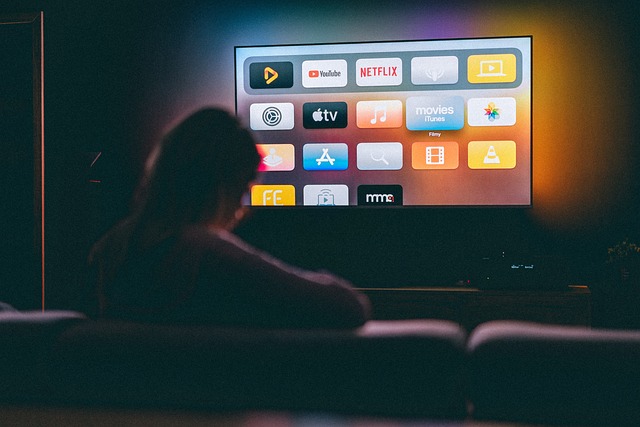Understanding IPTV: Revolutionizing How We Consume Television
In today’s digital age, the way we consume television has drastically changed. Traditional cable TV services are increasingly being replaced by more modern and flexible alternatives. One such alternative that has been gaining significant traction is IPTV, or Internet Protocol Television. This innovative technology allows viewers to stream television content over the internet, providing a vast array of options that cater to individual preferences. Companies like espanoliptv.com are at the forefront of this shift, offering services that deliver a rich selection of channels and on-demand content. Let’s delve deeper into the world of IPTV, exploring its features, benefits, and why it is becoming the preferred choice for many.
What is IPTV?
IPTV stands for Internet Protocol Television, a system that delivers television content using the internet rather than traditional terrestrial, satellite, or cable television formats. Unlike conventional broadcasting, IPTV allows for a more interactive and personalized experience. Instead of being bound by a fixed schedule of programs, users can choose what they want to watch, when they want to watch it. This is possible through live streaming, video on demand (VOD), and time-shifted media. Live streaming enables viewers to watch television in real-time, much like traditional TV but over an internet connection. Video on Demand (VOD), on the other hand, offers a library of content that users can access anytime. Time-shifted media allows viewers to watch programs that have already been broadcast but were recorded earlier, giving them the flexibility to catch up on missed shows.
The Advantages of IPTV
One of the primary advantages of IPTV is the level of control it offers viewers. Traditional TV services require you to adhere to a fixed schedule, which can be inconvenient. With IPTV, you have the freedom to watch your favorite shows, movies, or sports events at your convenience. This flexibility is particularly appealing in today’s fast-paced world, where people often juggle work, family, and other commitments. Another significant benefit is the sheer variety of content available through IPTV services. Providers like espanoliptv.com offer a wide range of channels that cater to diverse tastes and preferences. Whether you’re interested in news, sports, movies, or niche genres, there’s something for everyone. Additionally, IPTV can deliver content in multiple languages, making it accessible to a global audience. The quality of the content delivered through IPTV is also a key advantage. Since IPTV relies on internet connectivity, the picture and sound quality can be superior to traditional broadcasting methods. High-definition (HD) and even 4K streaming are common, providing viewers with a richer, more immersive experience.
How IPTV Works
Understanding how IPTV works is essential to appreciating its capabilities. IPTV services rely on a broadband internet connection to deliver content. The television programs are encoded into digital packets and transmitted over the internet. These packets are then decoded by the viewer’s device, such as a smart TV, computer, or a set-top box, allowing the content to be displayed on the screen. There are three main types of IPTV services: live television, time-shifted television, and VOD. Live television broadcasts content in real-time, similar to traditional TV, but through the internet. Time-shifted television allows viewers to watch previously aired content at their convenience, which is particularly useful for catching up on missed programs. VOD services offer a catalog of movies, TV shows, and other content that viewers can access at any time.
The Future of IPTV
The future of IPTV looks promising as more people move away from traditional cable and satellite TV services. The flexibility, variety, and quality of content that IPTV offers are driving its popularity. As internet speeds continue to improve and technology advances, IPTV services are likely to become even more sophisticated. One area where IPTV is expected to make significant strides is in personalized viewing experiences. With the help of AI and machine learning, IPTV providers can offer content recommendations based on viewers’ preferences and viewing habits. This not only enhances the user experience but also helps providers tailor their offerings to meet the demands of their audience. Another trend to watch is the integration of IPTV with other digital services. For instance, IPTV could be combined with social media platforms, allowing viewers to share their experiences and interact with others in real time. This would create a more engaging and interactive viewing experience, further distinguishing IPTV from traditional television.
Challenges Facing IPTV
Despite its many advantages, IPTV is not without its challenges. One of the most significant issues is the reliance on a stable and fast internet connection. Without sufficient bandwidth, the quality of the streaming can suffer, leading to buffering and interruptions. This can be frustrating for viewers, particularly during live events. Another challenge is the potential for legal issues, especially when it comes to content rights and licensing. IPTV providers need to ensure that they have the proper licenses to distribute content, or they could face legal repercussions. This is particularly important as IPTV services often cater to a global audience, and content laws can vary significantly from one region to another. Finally, there’s the issue of competition. As IPTV becomes more popular, the market is becoming increasingly crowded. Providers need to offer unique content, superior quality, and exceptional customer service to stand out from the competition.
Final Thoughts
IPTV is undoubtedly changing the way we consume television. With its flexibility, variety of content, and superior quality, it’s no wonder that more and more people are making the switch from traditional TV services. Companies like espanoliptv.com are leading the charge, offering a range of services that cater to the diverse needs of today’s viewers. As technology continues to evolve, IPTV is poised to become the dominant method of television delivery, providing a more personalized and engaging experience for audiences around the world.






